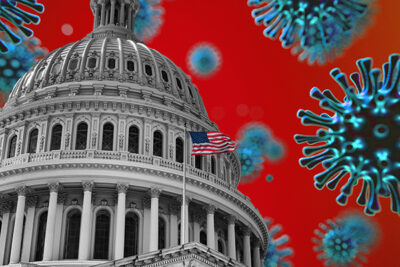
Congress Issues Special Report on COVID-19 Pandemic
By Jonathan Springston, Editor, Relias Media
The Select Subcommittee on the Coronavirus Crisis has issued its final report about what went wrong during the COVID-19 pandemic and offered 30 recommendations on how to prevent future disasters.
The subcommittee explained in great detail all the many missteps that occurred, starting with a lack of preparation as the SARS-CoV-2 threat emerged in early 2020, to poor planning that affected the supply of tests and personal protective equipment, to the spread of misinformation online and through the media.
To prevent similar disasters, the committee recommended prioritizing next-generation vaccines and therapeutics, making more investments in financial relief and public health infrastructure (while guarding against waste, fraud, and abuse), and dispelling misinformation.
“The report’s recommendations, informed by 42 hearings and member briefings and 37 staff analyses, will ensure the nation is better suited to face future threats while also enacting public health and economic policies that will serve us well in good times as well as bad,” said Rep. James Clyburn, D-SC, chair of the select subcommittee.
Dozens of organizations are calling on Congress to adopt the Prepare for and Respond to Existing Viruses, Emerging New Threats, and Pandemics Act (PREVENT Pandemics Act). Some of the provisions in this act are similar to what the select subcommittee recommended in its special report.
In a Nov. 15 letter to congressional leaders undersigned by dozens of national healthcare organizations, these groups urged lawmakers to “act now to lay the groundwork for our domestic security and preparedness. These provisions in PREVENT will strengthen state and federal preparedness, including through enhanced bio-surveillance and genome sequencing; address health disparities and ensure equity in pandemic planning and response, both rural and urban communities; support research and countermeasures; and address critical resource allocation issues and fortify the supply chain supply issues.”
The Senate Health, Education, Labor, and Pensions (HELP) Committee approved this act in March, there has been little action since. On Dec. 8, Senate HELP Committee Chair Patty Murray, D-WA, urged colleagues to pass the legislation.
“While there is more to do to strengthen our public health system beyond these reforms … the PREVENT Pandemics Act represents meaningful, bipartisan progress, carefully negotiated between Republicans and Democrats over nearly a year,” Murray said.
The select subcommittee will hold a final hearing, followed by a business meeting to formally adopt its special report, on Dec. 14.
For more on this and related subjects, be sure to read the latest issues of Hospital Infection Control & Prevention and Infectious Disease Alert.
